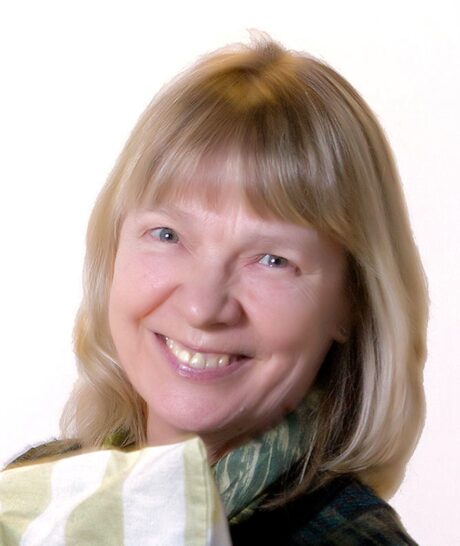Sleep Science Friday: Women In Science
Sleep Science Friday: Women In Science
12 March 2021
With regard to International Women’s Day on 8 March, we would like to acknowledge all women in science and bring attention to women’s achievements in the sleep field. The ESRS Forum for Women in Sleep Research is an open forum informally created in 1998 (during the ESRS Congress in Madrid). It aims to support female researchers as well as to encourage and promote scientific research pertaining to issues concerning women’s health and sleep.
It has since been successively led by distinguished female scientists in the sleep field – Professor Irene Tobler (Switzerland), Professor Tarja Porkka-Heiskanen (Finland), Professor Theresa Sagales (Spain), Professor Teresa Paiva (Portugal), Professor Myriam Kerkhofs (Belgium), Professor Eveline de Bruin (the Netherlands) and Dr. Raphaelle Winsky-Sommerer (England).
As of today, the ESRS is opening the position of the head of the Forum for Women in Sleep Research to candidates. The head of the Forum needs to be a member of the ESRS. Interested individuals should send a CV and brief motivation statement to vroni.aumeier@esrs.eu.
The ESRS has recently joined the ALBA network which aims to promote equity and diversity in the brain sciences. The ESRS signed the ALBA declaration on equity and inclusion.
We have already discussed some sex-related differences in sleep and sleep regulation (see SSF 12 Feb 2021) , but do these differences have a long-term impact or are they limited by symptom severity only? Professor Torbjörn Åkerstedt, the Head of the Department of Clinical Neuroscience at Karolinska Institute discusses sex-related effects of sleep.
Do you know how to distinguish a female hypnogram from a male one and to predict the mood based on sleep architecture? We invite you to take a quiz and to check your expertise in gender-related differences of sleep (log in with your user account to access the quiz).

Professor Tarja Porkka-Heiskanen, one of the founders of the ESRS Forum for Women in Sleep Research tells how the story began and developed.
The ESRS Forum for Women in Sleep Research has served sleep researchers for more than 20 years.
The realization that only few women adopted science for their career had led to establishing discussion forums to clarify the causes and to offer advice and support to women, who either considered a career in science or already had adopted one. At the APSS meetings in the USA, Mary Carskadon chaired such an informal forum for sleep researchers. Her example and support encouraged European counterparts to engage in a similar effort.
The initial discussions took place in Madrid in 1998, among the founding members, Irene Tobler, Tarja Porkka-Heiskanen, Theresa Sagales, Teresa Paiva, Eveline de Bruin and Myriam Kerkhofs. Dr. Kerkhofs later served as the chair of the Forum. The Forum was officially adopted as an official task force of the ESRS in the founding meeting in Istanbul in the year 2000.
At this meeting, which attracted a large audience, we had a serious discussion on whether such a forum is needed. Some scientists (female) expressed the view that sex of the scientist does not play a role in the ability to excel in science. While this view is undoubtedly true at an individual level, at the level of organizations and society, sex appeared to have a major role: very few women chose science for their career, and of those who did, only a negligible number reached higher academic positions. Was this because women were inferior in their ability to perform in science? When the question was formulated this way, most people, women or men, hesitated to say yes. It became evident that the members of different countries represented in the ESRS, were at a very different level regarding the acceptance of women scientists. Establishing a Forum within ESRS enabled an informal exchange between women and men sensitized to the issue, as well as enabling networking, including mentoring activities.
Importantly, this Forum has not targeted our male colleagues as opponents but co-workers, recognizing that we share common goals. Many male colleagues have also participated in our meetings which take place regularly at the ESRS congresses.
An important question was how to encourage women to adopt a career in science. This concern was shared with the European Union, which had formulated corresponding policies. In addition to policy declarations, the evaluation criterion for funding of EU applications included the participation of female scientists as well as research conducted on females.
Another important question was how to support young, female scientists. Regardless of sex, mentoring and forming researcher networks are essential tools. Both questions have been recurrent topics in the meetings of the Forum.
Has there been any progress? Undeniably, yes. The number of female researchers increases steadily. Slowly also the number of females in leading positions in research increases. It is important to understand that this has by no means been an automatic development. Thousands of small groups, societies, and forums, like ours, have worked to improve the possibilities for women to work in science. It has been extremely rewarding to see the progress.
Are we done? We have come a long way, but there is still work to do. We are still far behind our male colleagues in numbers holding leading positions and salaries.
Alarmingly, in some countries basic human rights concerning females are under pressure. While this development is not targeted specifically at female researchers, the consequences will in the end reach also us. Counteracting such developments may come up for discussion also in our Forum’s future meetings.
You are most welcome to join the Forum meeting during the next ESRS meeting.
Tarja Porkka-Heiskanen
This week we are suggesting for your attention several recent papers published by the female ESRS members:
- Bouloukaki et al. (2021). PAP therapy in patients with idiopathic pulmonary fibrosis and obstructive sleep apnea: multum non multa. J Clin Sleep Med.
- Baril et al. (2021). Slow-Wave Sleep and MRI Markers of Brain Aging in a Community-Based Sample. Neurology.
- Schiza et al. (2021). Sleep laboratories reopening and COVID-19: a European perspective. Eur Respir J.
- Bonsignore et al. (2021). European Respiratory Society statement on sleep apnoea, sleepiness and driving risk. Eur Respir J.
Just published an article? Want your research to be featured? Saw something interesting? Contact us at ESRS
Deadline to apply for the 2021 Examination in Sleep Medicine is 15 March. The online application is already open on this website.
Not a member yet? Apply here and see our wide range of benefits, including a yearly online subscription to the Journal of Sleep Research, automatic membership to the Federation of European Neuroscience Societies (FENS), support for early career researchers via the ECRN, regular updates via the ESRS Newsletter, promotion of your research, and more.
[/vc_column_text][/vc_column][/vc_row]



